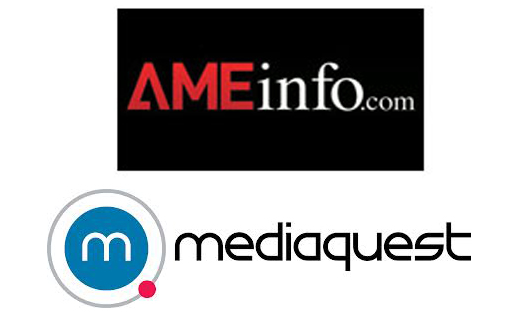A look at Mediaquest’s acquisition of AME Info: is advertising alone a viable model?

 As various sites have reported, UAE news portal
AME Info, along with sister site SME Info, have been acquired by
Dubai-based media publisher Mediaquest.
As various sites have reported, UAE news portal
AME Info, along with sister site SME Info, have been acquired by
Dubai-based media publisher Mediaquest.
While the terms of the deal are undisclosed, sources are saying
that the amount was close to US $1 million, a mere fraction of the
$29 million that Emap, now named Top Right Group, paid for the site
in 2006.
Since its launch in 1993, AME Info has built an audience of over
2.4 million unique visitors monthly and over 300,000 unique
registered users, and has retained a reputation as a go-to source
on the web for business announcements.
As one of the oldest news sites on the Middle East web, it's still
ranked first for business news sites in the Gulf region on
Effective Measure, an online audience measurement tool, says
Mediaquest Co-CEO Alexandre Hawari; sources say it may be the
most-read English news site in the region aside from Gulf Business
and Al Jazeera. “Despite the various changes in leadership over the
years, AME Info has shown resilience in brand value; it’s one of
the most valuable brands in the region,” says Hawari.
SME Info, which launched a year ago to offer startups advice,
access to mentors, video interviews, and an awards series that
brought over 500 attendees together last year, also demonstrates
“huge potential,” says Hawari. “The numbers are very
promising.”
So why the bargain basement price?
It’s not the first deal in the sector to underwhelm; when Zawya
sold to Reuters in a deal rumored to be around $40 million, the
price seemed a touch low to some, given that the site was almost
sold for around $80 million
in 2008, and Saffar Capital had already invested what some
sources say is around $10 million over the years.
Yet an amount closer to $1 million points to a heavy desire to
sell; while AME Info's traffic exceeds Zawya's, its current
valuation does not.
Arabian Money
suggests that the problem is sector-wide; that it’s simply
impossible to make revenue in digital advertising. Hawari rebuffs
this claim, saying, “AME Info is monetizing very well relative to
its traffic.”
It might be a question of priorities. In 2010, Emap had pointed to
the fact that an advertising model simply did not suit its overall
focus on subscription models, which it leveraged for business
intelligence magazine MEED,
Al Arabiya reports.
“Unlike MEED, the AME and SME websites operate to an
advertising-led model,” Al Arabiya quotes Matthew Wright, finance
and operations director for Top Right Group in the Middle East and
Africa, as saying during this sale. “[W]e believe that Mediaquest,
a leading media group which has an existing portfolio of
advertising led portals, will be a better long term partner for the
websites than we can be.”
Other sources say that the desire to sell was driven less by
difficulties with digital advertising and more by a push by Top
Right Group owners Apax and Guardian Media Group to focus beyond
the Middle East and divest from non-strategic assets.
Either way, global trends point to subscription models as
potentially more reliable longterm sources of income; both
the New
York Times and the
Financial Times have noted recent growth in subscription
revenues as ad revenues fall; the FT is set to see subscription
income surpass ad revenue this year.
Zawya, for one, focused on a subscription model early on. While
daily news was initially free, readers would pay for sector
analyses and intelligence reports. Around two years ago, the site
boosted revenue by putting up a pay wall for daily content and
increasing subscription fees.
Under Reuters, sources say, Zawya may be beefing up its focus on
advertising revenues, however, while also increasing subscription
fees.
Mediaquest, meanwhile, wants to move AME Info towards a hybrid
model, adding subscription services once the AME Info and SME Info
sites are re-launched in September. “If you want deeper data
on a company, you will have to pay for it. But advertising will
still be the main source of revenue,” says Hawari.
A focus on more in-depth content might help the site cultivate a
more targeted audience as well.
The media publisher, which was founded in Paris and primarily
serves the Middle East and North Africa, also owns online ad
network Dotmena, which runs ads on over 2,000 websites.
Mediaquest also publishes a total of 17 titles, including The
Kippreport online and print magazines Gulf Marketing Review,
Communicate, TRENDS, and Marie Claire Arabia. In 2009, Abraaj
Capital acquired a minority stake in Mediaquest.


